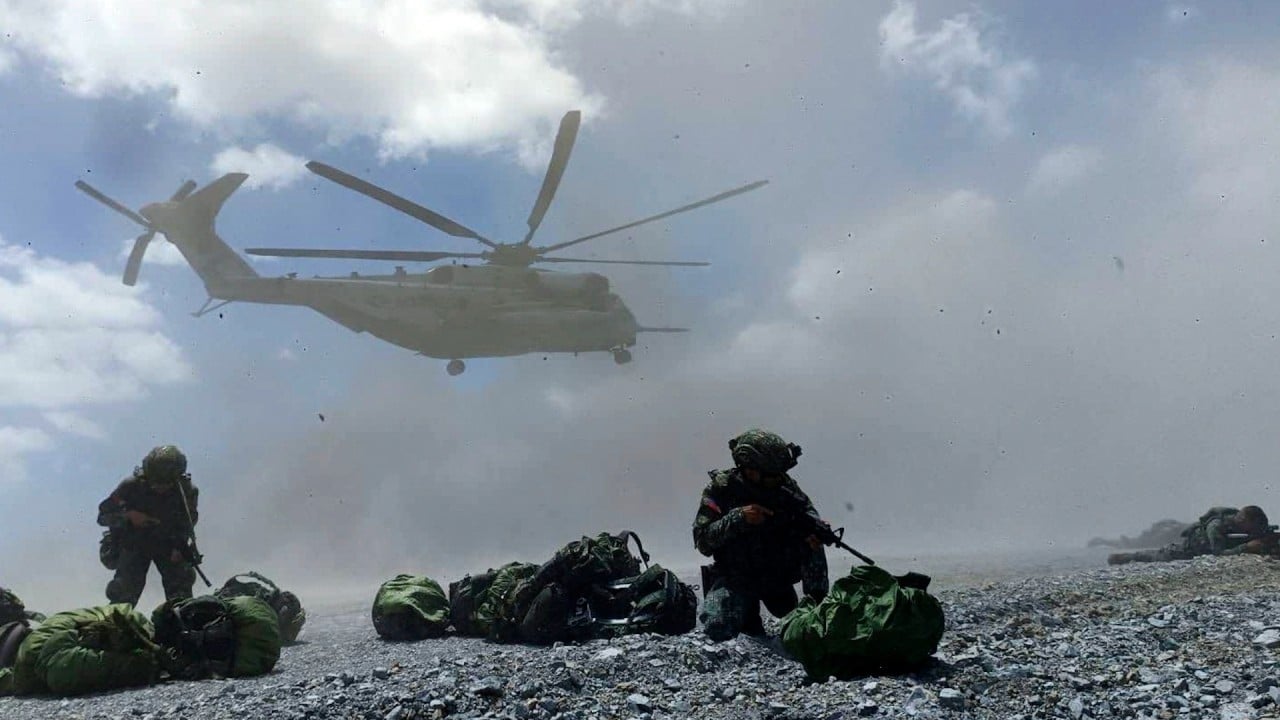Noting that the US military may eventually lose its edge over China in the region, the study says China is challenged by a lack of combat experience and that its exercises “remain underdeveloped and over scripted for a regional contingency”.
“The US will seek to maintain its lead via plethora of military exercises with almost all regional countries,” the study notes. “China will try to narrow the gap by deepening its exercise ties with a small number of regional partners.”
More broadly, military deployments across the region have been rising for several years amid tensions over Taiwan and territorial disputes in the vital trade waterways of the East and South China Seas.
Beijing sees Taiwan as part of China to be reunited by force if necessary. While many nations, including the US, do not officially acknowledge Taiwan as an independent state, they oppose any use of force to alter the existing status quo.
Diplomats and analysts say they are watching the trend closely, with some noting that drills serve many purposes: promoting freedom of navigation in disputed waters, signalling deterrence and reassurance, and improving diplomacy.
The drills also create opportunities to probe rivals’ capabilities and communications, with both US and Chinese ships and planes frequently shadowing each other, said three military attaches, speaking on condition of anonymity because of the sensitivity of the situation.
China, North Korea and Russia have all complained that the increasing tempo of US drills, with and without its allies, is driving up tensions in the region and triggering arms build-ups. The US says the exercises are needed to build confidence and improve interoperability.
Chinese defence ministry spokesperson Wu Qian said on Thursday that Beijing’s goal was to strengthen its defence capability against “aggression” and enhance regional trust.
Chinese drills with other forces often involve parallel operations rather than interoperability, which the US promotes with its allies and partners.
The IISS noted China’s growing focus on the Indian Ocean, where some analysts have warned it would struggle to defend its vital energy supplies in an East Asian conflict.
It noted the complexity of naval drills with Pakistan in the Arabian Sea in November 2023 involving China’s most advanced Type-052D destroyers.
Washington’s focus on competition with China since the mid-to-late 2010s sparked changes, the report says, and its operations with allies Japan, the Philippines and Australia are more important.
“The shift towards more frequent and larger exercises with more partners followed prior trends but along a much steeper trajectory that is set to continue beyond 2024,” the report says.
“Washington did not pursue this shift independently; it could not have occurred absent the rising threat perceptions of some Asia-Pacific states that had been clashing for years with an increasingly assertive China.”
Singapore-based scholar Ian Storey, who has carried out his own survey of China’s interactions with Southeast Asian militaries, says Beijing’s involvement spiked in 2023 and is expected to continue to rise.
“While the increased tempo of China’s defence engagements with Southeast Asia looks impressive, they should be viewed in perspective,” said Storey, of the ISEAS – Yusof Ishak Institute, referring to the relatively small number of Beijing’s exercises compared with the US.
More broadly, the exercise trend’s effects on regional security depend on who is doing them and why, said Euan Graham, a senior analyst with the Australian Strategic Policy Institute.
As a result, he said, risk “is in the eye of the beholder”.
Some Southeast Asian countries, he noted, do not see allied exercises as reassuring, but rather as spurring the other side – China in this case – to hold more exercises of their own.
But some of its regional allies had made “a very strong demand for reassurance” from the US, he said.


